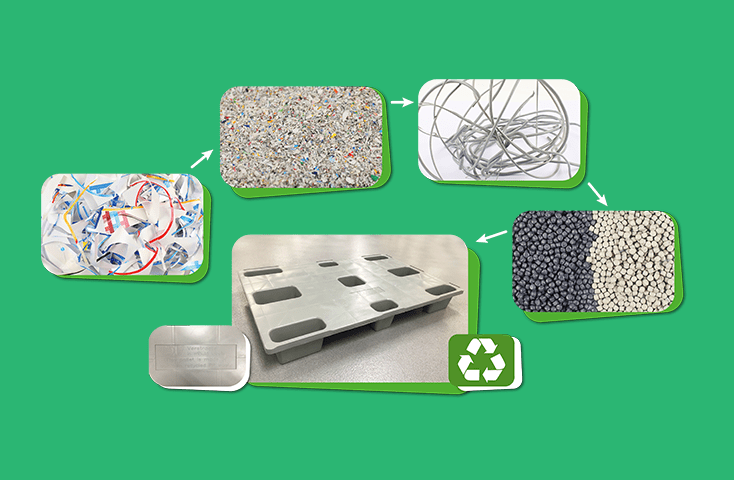MCC Verstraete prioritizes sustainability. This means that efficient waste management and circular solutions are an essential part of the production process. A recent innovation introduced by the company is the production of plastic pallets from the company’s own polypropylene IML waste.
MCC Verstraete’s core business is producing in mold labels. Inevitably, waste is produced during that production, primarily polypropylene waste. 3,500 tons of this waste is processed annually by Plastic Recycling Verstraete (PRV), the spin-off company of MCC Verstraete, into a new basic raw material: recycled PP granules (rPP).
Circular economy
“Until recently, those granules were sold to third parties for making new products,” explains the Purchasing Manager at MCC Verstraete, Rudi Verhulst. “Until we figured out that we could process them into usable materials ourselves, namely pallets.”
In other words, we decided to start processing part of our own waste into materials that can be used in our own production process. It’s a great way for us to contribute to the circular economy.
Rudi Verhulst, Purchasing Manager at MCC Verstraete
Strong as wood
Every year, MCC Verstraete produces 12,000 to 14,000 pallets in the same format as standard euro pallets and equally if not stronger than the wood ones. Not only that, but the pallets are “personalized” in the sense that it can clearly be seen that they are MCC Verstraete pallets produced from the company’s own waste materials. After all, why not share your sustainability efforts with the world?
But that’s not our only contribution to the circular economy. Since MCC Verstraete’s clients are injection molders that work with polypropylene, they can use the recycled PP pallets as part of their own business operations, either for internal use (transport) or to recycle yet again into granules, giving them a third lease on life. “The regranules in turn can be used for the production of, for example, flower pots or even garden furniture,” concludes Purchasing Manager Rudi Verhulst.


